By R. Chandra Prakash, Mysore Grahakara Parishat
Bengaluru Way — It is oft-repeated statement that Mysuru is going the Bengaluru way. But what does “Bengaluru way” mean? This statement summarises the phenomenal transformation that Bengaluru has undergone.
Before the integration of the State, Mysuru was the capital city whereas Bengaluru was a cantonment city. Makkaji Chowk, Doddapete, Santhepet and Shivarampet became the commercial hub of Mysuru. Despite subsequent expansion, this city centre continued to be the epicentre of commercial and cultural activities. This same area went on to become Central Business District (CBD) in the Master Plans. Double-tracking of railways and the widening of road link between Bengaluru and Mysuru opened up mini-exodus from Bengaluru to Mysuru.
Establishment of IT-based service units in Mysuru created white-collar jobs in large numbers. The economic scene in Mysuru changed from a sleepy town to a vibrant one. With electrification of railway track and six-lane conversion of Bengaluru-Mysuru Road on the anvil, there is every possibility of Mysuru going the Bengaluru way. But the total defacing of Mysuru will be faster than Bengaluru.
Vehicular explosion and traffic congestion in CBD
Mysuru had only about 7,000 vehicles in 1970, but by 2016, this was up by over 8 lakh! Consequently, the roads were widened time and again, taking away sizeable portions of footpaths. Further, these reduced footpaths are occupied by hawkers. Pedestrians are forced to walk on the roads, which are dangerously congested.
The situation is precarious in the CBD. Despite shifting of wholesale shops from Santhepet and opening up of Devaraja Urs Road as a new shopping area, congestion of traffic on Sayyaji Rao Road, Shivarampet, Irwin Road, Ashoka Road, Bengaluru-Nilgiri Road between Five Lights Circle and Hardinge Circle has not reduced. On the contrary, it has increased substantially. Closing down of Makkaji Chowk has put extra pressure on these roads.
Irony of more traffic, less business!
It is an irony that shop owners complain of loss of business by the passing day despite ever-increasing crowds and high density of vehicular traffic in the CBD.
Then what is causing this traffic congestion? CBD is also categorised as the Heritage Zone with the location of places of touristic importance. The Palace is the epicentre of CBD. Devaraja Market, Jaganmohan Palace, Zoo and Karanji Lake makeup for the tourist attraction.
However, if there are no proper steps taken to overcome this traffic mess in the CBD, even tourism will take a beating. What happened to Avenue Road, Kempegowda Road in Bengaluru will soon happen to CBD pretty soon.
Need for the study
No study is known to have been made for unravelling this phenomenon. Mysuru Nanjangud Master Plan, being a land use plan, confined itself to finding places for multi-level parking and road-side parking. It did not delve into causes for and consequences of over-powering traffic.
Mysore Agenda Task Force (MATF) had tried but the Report could not see the light of the day as MATF was wound up. MUDA and MCC are said to have carried out some such study but their reports are not in the public domain. Or for that matter, neither of them seems to have taken this problem seriously.
Mysore Grahakara Parishat (MGP) is of the opinion that only a proper diagnosis can help in prescribing remedial measures. It has been drawing the attention of public and authorities to this grave problem of traffic congestion through publication of articles in newspapers and holding of meetings.
MGP tried seriously and repeatedly to convince the authorities to set up a Task Force consisting of experts and stakeholders to understand the causes for heavy vehicular congestion. Unfortunately, MGP could not succeed in its efforts. MGP has now decided to undertake this study by itself.
MGP will collect all secondary data available in the public domain to draw up a fair picture of causes. It will hold deliberations with stakeholders such as businessmen, business associations, medical services, user groups, Railways, KSRTC, Regional Transport Authorities, Transport Authority of the District, Police Department, MCC, MUDA, civic authorities of the district and the other NGOs and associations like Rotary and Lions. MGP also is planning to get help from leading educational institutions of Mysuru.
The central idea behind this study is to find out the reasons for prevalence of ironic situation of high congestion of vehicular traffic, coupled with complaint of lack of business. It will list out short-term and long-term remedial measures.
MGP hopes that this study will help save Mysuru from going the “Bengaluru way.”



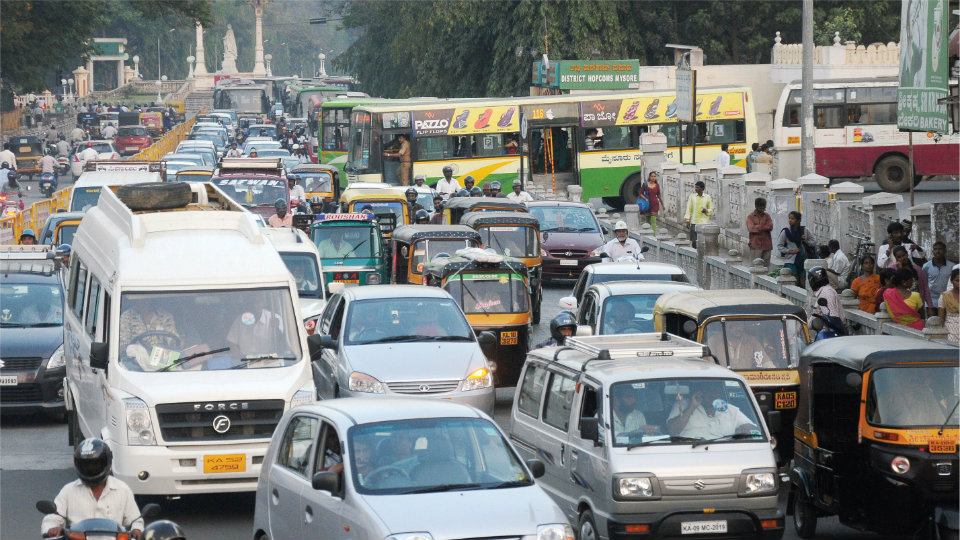
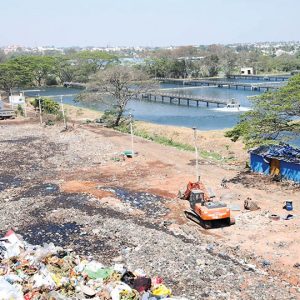
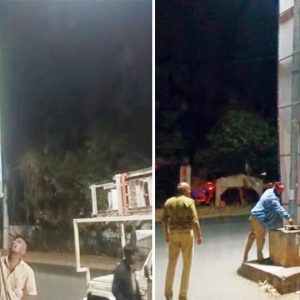
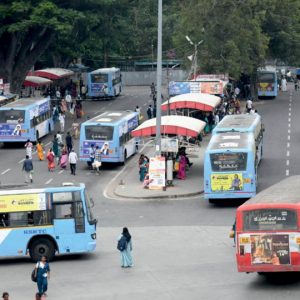
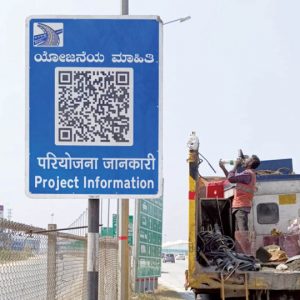
This article sounds puerile. Mysore ‘s population has quadrupled since 1950s looking at a rough estimate of the population growth. As a result , the more compact boundaries of Mysore in 1950s and 1960s, were expanded by cutting down forests if necessary so that umpteen extension could be created t with massive construction of houses to accommodate the ever increasing population. Mere walking or cycling to these extensions have become an impossibility. Add to this , a petrol-driven vehicle with 4 feels is a prestige symbol, and you get the essentials for a choking city with vehicles. The so called IT revolution-meaning using cheap IT labour to carry out the outsourced work for the big Western companies, provided an attractive means of making crores of Rupees and the large IT companies emerged which began to run to IT sweatshops with cjheap IT Labour. You could see these IT CEOs, the veritable fat cats opening IT training centres to train yet more IT coolies, getting themselves rich yet more . Cheap land available then around sparsely populated Mysore , sucked in more and more people, and yet more extensions added with yet more vehicles on the road.
The ” Bangalore Way” emerged because of the large state-owned companies created around Bangalore in early 1960s, which triggered the growth of more private companies emerging everywhere in and around that City. The very fast growth of extensions breaching the original boundaries of Bangalore with the consequent growth of population within that decade, sealed the “Bangalore Way”. In a way, this was inevitable, after the state-owned companies were firmly rooted in Bangalore.
But.Mysore could have resisted the massive growth. There was no inevitability here as in the case of Bangalore. Mysore MLAs, and the municipal councillors were weak-kneed, in not protesting against this growth in 1960s, when the indications then was that Mysore would be subjected to explosive growth of population. Those responsible in administering Mysore silently gave in earning their promotions by sacrificing the serenity of the City. They know very well that the docile populace will meekly give in.
This suggested traffic study is like trying to shut the stable doors when the horses have already bolted. The traffic study will simply show what is so obvious, that every area of this City is massively congested, and there are no short term or long term remedies when a City is in this state. One might suggest to extend the boundaries of the City yet further, which will only bring in more population growth and more vehicles.
The City is choking with people, just like India, which is adding the population of one Australia less than one year, every year.
Just look at how many hundreds of thousands want to get out of India every year! That says something obvious.
The Mysore Grahachara Parishad is trying to get noticed!!